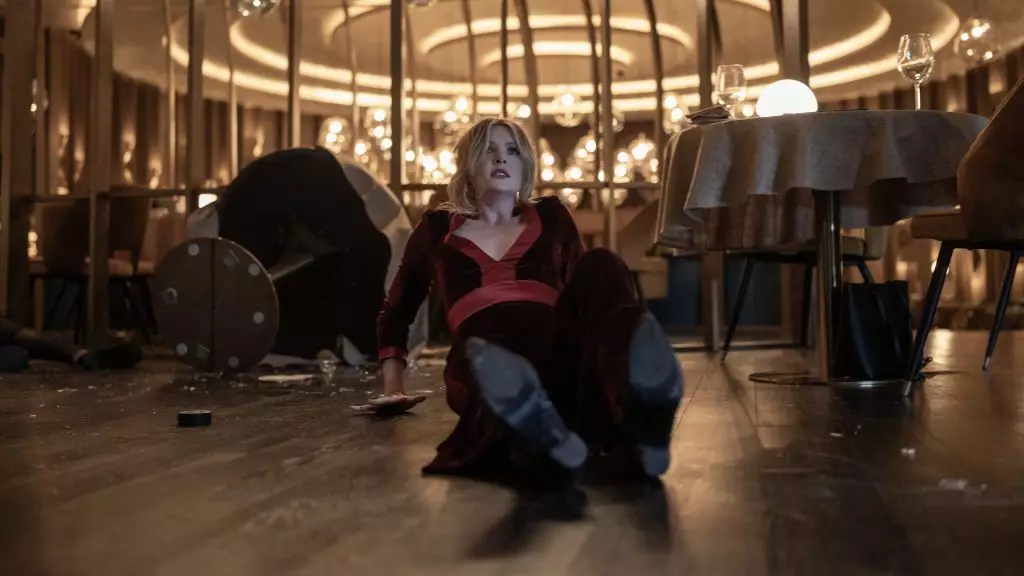Christopher Landon’s latest cinematic venture, “Drop,” doesn’t just serve horror; it serves as a modern social commentary on the complexities of dating in an age dominated by technology and trauma. The film introduces us to Violet (Meghann Fahy), a widowed mother grappling with the haunting memories of her late husband as she attempts to re-enter the dating scene. Herein lies the backdrop that draws viewers into a world laden with emotional baggage. The essence of Violet’s uncertainty resonates deeply with many contemporary singles who find themselves torn between the desire to create new memories and the scars of previous relationships.
The Digital Illusion
At the core of “Drop” is a clever twist on the urban folklore reminiscent of the classic “When a Stranger Calls.” As Violet engages with her potential love interest, Henry (Brandon Sklenar), she becomes ensnared in a digital nightmare, receiving unsettling messages that suggest her date might be more sinister than charming. This meticulous script by Jillian Jacobs and Chris Roach intertwines the digital world with real-world fears—call it a cautionary tale for those who overshare personal information in today’s hyper-connected climate. The fabric of modern dating is woven with false pretenses, and the film shines a light on how easily someone can flip the narrative from romantic to predatory within seconds.
Performance that Packs a Punch
Fahy’s portrayal of Violet is nothing short of mesmerizing. She embodies a character that is both an anxious mother and a woman needing affirmation, effectively bringing depth to her dual role as a therapist and a victim of life’s circumstances. Unlike many horror heroines before her, Violet is not just a pawn in someone else’s game; she’s a fighter willing to confront her fears for the sake of her son. The chemistry between Fahy and Sklenar only intensifies as anxiety mounts—an intricate dance of potential love soured by growing mistrust. This relationship is a microcosm of modern love: exhilarating yet fraught with peril.
Comedy Amidst Chaos
Landon’s directorial flair shines through in Jeffrey Self’s uproarious performance as a socially inept waiter, adding layers to a film that could easily slip into gloom. Self’s character adds levity, making it clear that humor can coexist with horror. By drawing attention to the absurdities of social interactions, the film prompts us to reflect on our own discomforts while simultaneously heightening the stakes for Violet. This dichotomy underscores a pivotal theme: that no matter how dire the situation, human connection—whether it’s through laughter or empathy—remains essential.
A Thrilling Exploration of Self-Identity
“Drop” captivates not merely through its promise of thrills but through its brilliant examination of self-identity in the digital age. In a world where social media profiles often present a distorted version of reality, the film deftly illustrates how one’s online persona can influence—even manipulate—real-life relationships. As Violet navigates the evening, the pressure imposed by societal expectations looms large, eclipsing her genuine self in favor of how she believes she ought to appear.
Steering clear of the predictability common in the genre, “Drop” stands as a testament to the complexities of modern love, using white-knuckle suspense to engage viewers intellectually and emotionally. With its adept storytelling, the film serves as a critique of our often shallow digital interactions while daring us to confront the deeper implications that lie beneath the surface.

